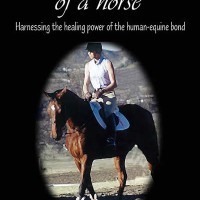A study recently conducted by the American Pet Products Manufacturers Association found that 74 percent of dog owners, 60 percent of cat owners, and 45 percent of bird owners considered their pet as a child or family member. Sixty two percent of cat and dog owners said their pet helped them relax and relieved stress. Further, 59 percent of dog owners and 37 percent of cat owners thought their pets were not only good for their health but would help them live longer.
However, when the person is placed in a position of service, such as in a guardianship position, it was demonstrated that those who guard over a dog are more likely to survive after a heart attack. One hundred percent of the dog guardians polled said that they turn to their animal companions for emotional support, sometimes instead of friends. Further, 100 percent talk to their pets, and 97 percent of animal guardians think their pets understand what they are saying.
So why would the statistics change when a person is placed in a position of service to an animal? Just what is it about being responsible for something other than ourselves (especially a life form) that increases emotional connection?
Maybe it’s that in caring for something else we are much less likely to focus on our own pain. Or perhaps being able to help another provided a very needed sense of control in one’s life.
Whatever the case, many equine therapy programs have turned to rescue horses for just this very reason. By bringing in horses that are in need of rehabilitation, often due to starvation, neglect, or abuse, these programs have been able to offer participants an added benefit to just being around horses. Specifically, programs that feature rescued horses offer people a sense of purpose. When a person feels as if a horse needs him/her, what he/she takes away is that his/her actions matter. This of course becomes all the more profound when a horse is in very dire condition.
For a person who may be battling with depression, PTSD, or abuse themselves, the feeling that what they do makes a difference can have a tremendous impact on their sense of wellbeing. This, of course, is also why the act of volunteering is a very common concept in AA programs as well as positive psychology.
So next time you are feeling a little down, consider helping out at an animal rescue. And especially in the case of horses, returning a former racehorse (a large majority of neglected horses are former racehorses) to his full glory can be nothing short of awesome.
For information on volunteering at an equine rescue, follow these links:
http://www.horseshowcentral.com/horse_rescue_search.php
http://www.horseworlddata.com/rescue.html
http://www.equinerescue.info/links.html
http://www.helpingequines.org/images/Helping_Equines_Rescue_List_08182007.pdf
http://www.gentlehorses.com/Horse_Rescues/Horse-Rescue-Organizations.htm
